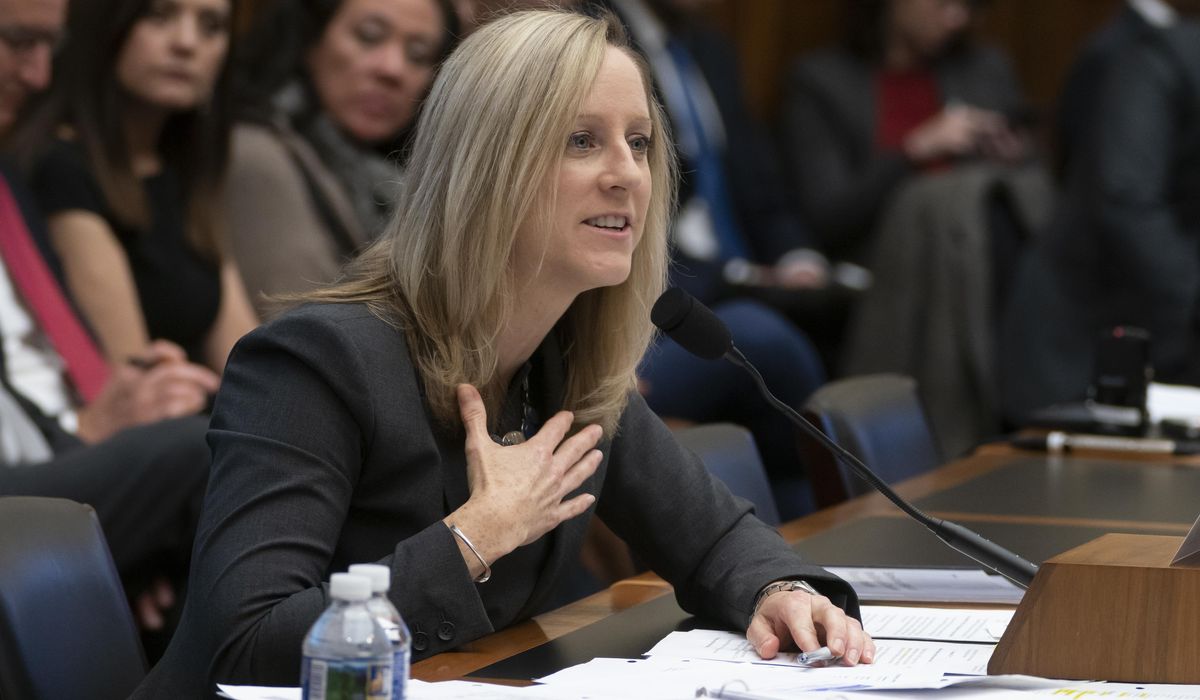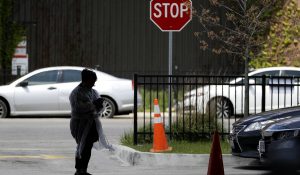Banks are offering plenty of leeway on paying bills during coronavirus, but consumers who have cash should still pay off everything they can because they’ll save money in the long run, the country’s top consumer advocate told The Washington Times on Tuesday.
Kathleen Kraninger, director of the Consumer Financial Protection Bureau, said everyone should evaluate their own situations, but for most bills, creditors are still going to charge interest, even if they grant an extension on paying the amount that’s due.
“If you can pay some of your bills you should, because regular interest still accrues. You will pay less if you pay now,” she said.
Ms. Kraninger said her agency, created in the wake of the 2008 financial crisis to police Wall Street, is on the job.
That means collecting complaints from consumers, and doling out data about the relief that’s available to them.
Ms. Kraninger said they got a record number of complaints in March and April, though most of the coronavirus-related reports were because of confusion and the evolving situation. For the most part, companies have been good actors.
Mortgage and credit card complaints topped the coronavirus list.
“There are a couple institutions where there have been problems in the past and perhaps not surprisingly there are a couple outliers, but for the most part this really is a confusion point and an evolving point in my estimation,” she said.
The pain of the virus is beginning to bite, with tens of millions pushed out of work.
Polling last month by The Associated Press and NORC at the University of Chicago found 11% have already been unable to pay a credit card bill specifically because of the coronavirus.
The poll also found 11% have been unable to make a rent or mortgage payment and 19% have missed another type of bill. The pain is being felt the most among those at the lower end of the income spectrum with 28% of those making less than $50,000 saying they’ve missed another type of bill because of the virus
Those who face tough choices should call their creditors and see what help is available, Ms. Kraninger said.
“All of the institutions are working with consumers now on accommodations, as the regulators have directed,” she said.
CFPB has created a worksheet to help people struggling to pay figure out how to prioritize their bills, with warnings about consequences for missing various payments. For example, missing a credit card payment can still mean a negative entry on a credit record, even during the pandemic.
Anyone with a federally backed mortgage is entitled to a 180-day forbearance, for example, meaning no additional fees or penalties.
Payments on federally backed student loans have also been frozen, and interest isn’t accruing on the balance.
Mr. Kraninger said consumers need to be on the lookout for scammers seeking to separate them from their money at this vulnerable time.
No government assistance agency offering help is going to call and demand personal information over the phone, she said.
The Federal Trade Commission has warned of scams offering testing, treatments or cures for coronavirus. Testing is indeed available, though at government-approved sites. There is no cure or vaccine, so any message offering those is automatically a scam.
One prominent scheme involves a phony email from a relative supposedly in need — a grandchild, for example, stranded in another country, seeking help. Those scammers often beg for secrecy and urgency on the part of those sending money or buying gift cards.
And phishing emails or messages trying to hook unwary consumers into scams are proliferating, with some claiming to be from the World Health Organization or the White House.
“Take a close look, and don’t follow a link automatically,” Ms. Kraninger said.



















